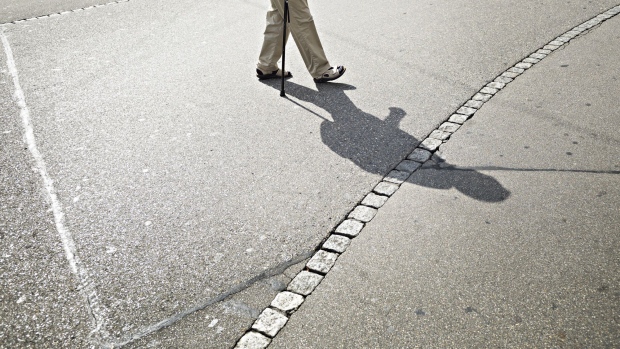Sep 18, 2020
Drugmakers Reject Trump’s Senior Savings Cards Before Elections
, Bloomberg News

(Bloomberg) -- The pharmaceutical industry rejected plans by the Trump administration to send one-time drug savings cards to seniors before the November elections.
In a deal with the White House, drugmakers were expected to spend $150 billion to offset out-of-pocket consumer costs and co-payments to help elderly Americans, the New York Times reported Friday. The agreement fell through after White House Chief of Staff Mark Meadows insisted that the companies pay for the $100 cash cards -- known as “Trump Cards” by some in the industry -- which would be sent to seniors before the polls, the paper reported. The newspaper said White House officials insisted they didn’t plan to have President Donald Trump’s name on the cards.
“We could not agree to the administration’s plan to issue one-time savings cards right before a presidential election,” said Priscilla VanderVeer, a spokeswoman at PhRMA, the industry’s largest trade group. “One-time savings cards will neither provide lasting help, nor advance the fundamental reforms necessary to help seniors better afford their medicines.”
Earlier in the week, Trump started a process that could cut some U.S. drug costs by tying prices to those paid by countries with national health systems, a move drugmakers said will stifle innovation. The order, released on Sunday, came after an earlier attempt to force pharmaceutical companies to make reductions didn’t yield results.
He said that he’d signed an order on the “most favored nation” plan, which would try to link Medicare Part B and Part D prices to lower prices paid by other countries. The approach was broader than an initial effort that only targeted Part B.
“President Trump is working to ensure American patients are no longer forced to pay outrageously higher drug prices than those in other countries,” Judd Deere, a White House spokesman, said Friday. “President Trump signed four executive orders earlier this summer. However, he did not release the final executive order on ‘most-favored nation’ drug pricing, giving drug companies a month to come up with a counterproposal. Negotiations did not produce an acceptable alternative, so the President is moving forward.”
In late July, Trump announced plans for multiple executive orders, including one that would allow Americans to buy medication imported from Canada. The president announced the “favored nations order” at the same conference in an attempt to pressure drug companies to the table to strike a deal.
Trump has sought to improve his standing on health-care issues, particularly with older voters, as negative sentiment over his handling of the coronavirus has mounted.
©2020 Bloomberg L.P.